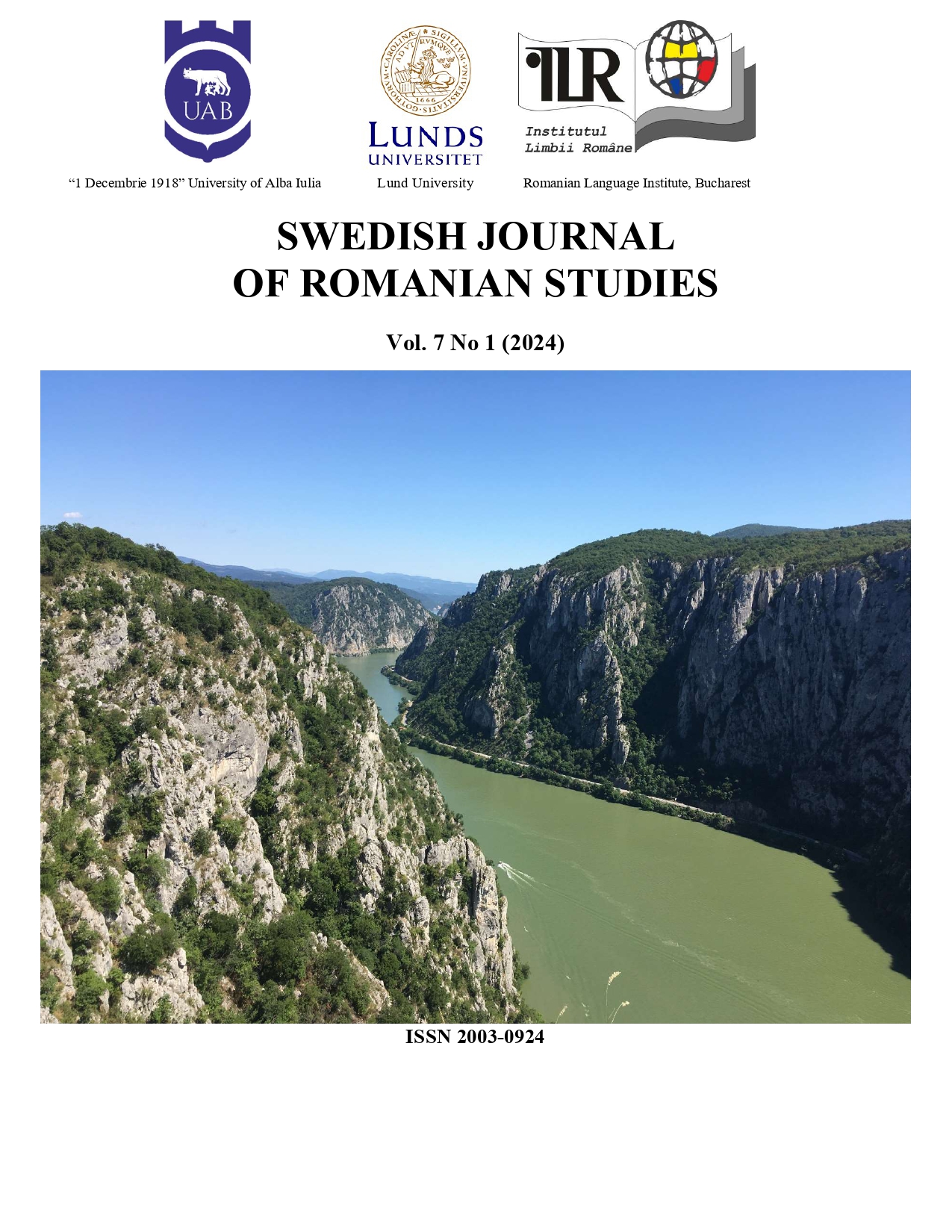The anxiety of influence unbound. Shelley’s Prometheus and Philippide’s Prometheus in the looking glass
DOI:
https://doi.org/10.35824/sjrs.v7i1.26041Keywords:
anxiety of influence, Prometheus Unbound , PB Shelley , The Banishment of Prometheus , Alexandru Philippide , Greek myth of PrometheusAbstract
The paper draws a brief parallel between the works of Percy Bysshe Shelley Prometheus Unbound (1820) and of the Romanian Alexandru Philippide The Banishment of Prometheus (1922). It starts from the Greek writers’ image of Prometheus in Hesiod’s Works and Days and Theogony and in Aeschylus’ Prometheus Unbound. It also discusses Harold Bloom’s theory as it analyses the potential anxiety of influence of the Greek writers on Shelley and Philippide and it shows forth this effect seen as a “revisionary ratio” and named by Bloom (1973) a tessera, which means “completion and antithesis”. Both authors create a complex Prometheus character who holds multiple facets. Both authors shape Prometheus as a figure that contains the Western core of values, be they positive or negative. Prometheus actually commits the original sin for man’s sake. This haughty act can be compared to the biblical theft of forbidden knowledge. The author claims that the aim of this theft and the punishment meted out to Prometheus by Zeus are destined to estrange man from nature and from God and to push man into hubris. These also kindle man’s Faustian propensity which turns man into his own divinity, or which recasts the divinity according to man’s own design. If Shelley’s Prometheus turns out to be the Romantic hero achieving moral and intellectual perfection, being uplifted by authentic, selfless and noble goals, Philippide’s Prometheus is the disillusioned, bitter hero from a well-wrought ars poetica, who seeks another mankind on whom to bestow his love and selfless goodwill gestures. His poem represents a symbol of the artist living in his ivory tower failing to be understood by his fellow beings.
References
Abrams, M. H., & Harpham, G. (2009). A glossary of literary terms (9th ed.). Boston: Cengage Learning.
Aeschylus. (2012). Prometheus bound (D. H. Roberts, Trans.). Cambridge: Hackett Publishing Company, Inc.
Bloom, H. (1973). The anxiety of influence: A theory of poetry. Oxford: Oxford University Press.
Dougherty, C. (1997). Prometheus. London: Routledge.
Braxton, E. C. (1967). Shelley’s Prometheus unbound: A critical analysis and interpretation [Master’s thesis, University of Richmond]. Retrieved January 22, 2024, from http://scholarship.richmond.edu/masters/theses?utm_source=scholarship.richmond.edu%2Fmasters-theses%2F1161&utm_medium=PDF&utm_campaign=PDFCoverPages
Grayling, A. C. (2009). Set Prometheus free. London: Oberon Books.
Hesiod. (2012). Theogony: Work and days (H. G. Evelyn-White, Trans.). Harmondsworth: Penguin Books.
Highet, G. (1985). The classical tradition: Greek and Roman influences on Western literature. Oxford: Oxford University Press.
Manolescu, N., et al. (1972). Alexandru Philippide interpretat de… [Alexandru Philippide interpreted by…]. București: Eminescu.
Peterfreund, S. (2002). Shelley among others: The play of the intertext and the idea of language. Baltimore: John Hopkins University Press.
Philippide, A. (1995). Poezii [Poems] (A. Tănăsescu, Foreword). București: Albatros.
Sagar, K. (2012). Rebels against the Gods: Prometheus, Odyssesus, Job. Retrieved January 22, 2024 from http://www.keithsagar.co.uk/Downloads/LACAN/can01%20_2_.pdf
Shelley, P. B. (1959). Prometheus unbound: A variorum edition (L. J. Zillmann, Ed.). Seattle: University of Washington Press.
Shelley, P. B. (2004) A defence of poetry and other essays, The Project Gutenberg Ebook
Tarnas, R. (2018). Prometheus, the awakener. Connecticut: Spring Publications.
Vianu, T. (1960). Studii de literatură universală și comparată [Studies of world and comparative literature] (1st ed.). București: Editura Academiei.
Downloads
Published
How to Cite
Issue
Section
License
Copyright (c) 2024 Sorin Ciutacu

This work is licensed under a Creative Commons Attribution-NonCommercial 4.0 International License.
Authors who publish with this journal agree to the following terms:
a. Authors retain copyright and grant the journal right of first publication with the work simultaneously licensed under a Creative Commons Attribution-NonCommercial 4.0 International License that allows others to share the work with an acknowledgement of the work's authorship and initial publication in this journal.
b. Authors are able to enter into separate, additional contractual arrangements for the non-exclusive distribution of the journal's published version of the work (e.g., post it to an institutional repository or publish it in a book), with an acknowledgement of its initial publication in this journal.
c. Authors are permitted and encouraged to post their work online (e.g., in institutional repositories or on their website) prior to and during the submission process, as it can lead to productive exchanges, as well as earlier and greater citation of published work (See The Effect of Open Access).

